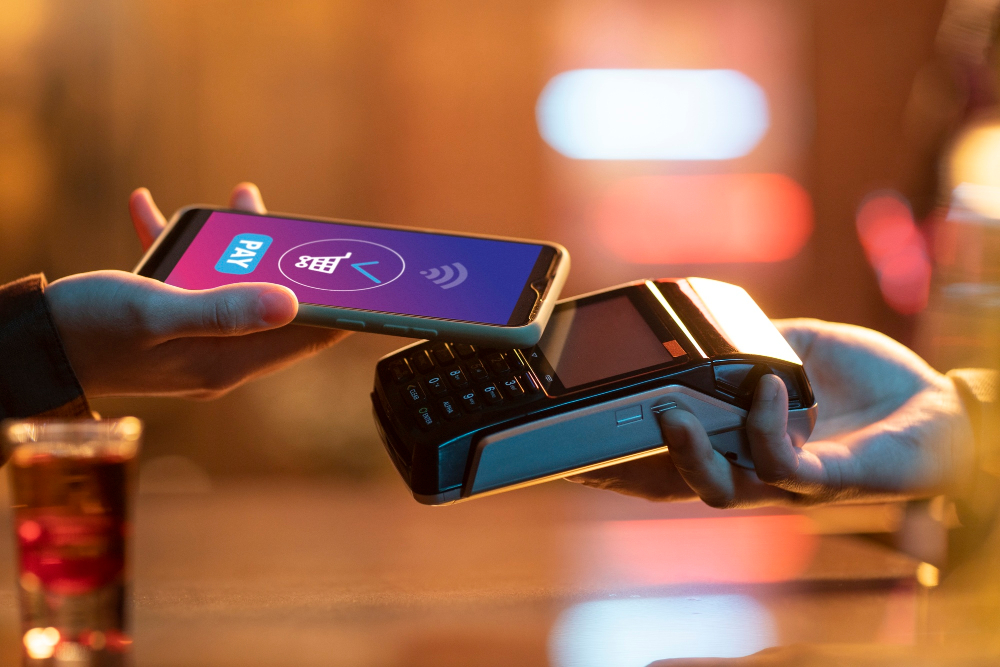
Table of Contents
ToggleIntroduction
Business-to-consumer and business-to-business communication have changed dramatically due to a change in the economic structure. Developing a payment gateway that involves AI was one of the primary causes of this shift. More and more businesses are now leaning on technological advancements such as AI for quick and guaranteed transactions, so the question of how to build an AI payment gateway is no longer in question.
Due to the improved AI payment gateways, DiviaShop can provide business owners with new opportunities, such as creating accounts and getting their high-risk merchant accounts approved. AI has already destroyed the old system of human labor-based transactions and cleared the way for digital money transactions, which are safer and faster than NEFT or IMPS.
This article is going to address the developments that the future of digital payments will bring through the new concepts of AI and ML, besides the related security, fraud detection, and better transaction capabilities from a technical point of view.
Changes in Payment Gateways Over Time
AI and ML are two facets that have been in use for quite some time no, and the whole picture cannot be fully depicted without being aware of how the payment gateways have changed over time. Originally, payment gateways acted as intermediaries in the transactions of buyers, sellers, and banks. Unfortunately, the time of the early gateways was plagued with several issues, such as high processing costs, poor security, and long transaction processing time.
Payment gateways are modernized by introducing the latest encryption methods to ensure transactions are secure for online banking, mobile payments, and digital wallets. AI and ML are the front forces driving the development of the payment gateways with time, improving their safety and speed as well.
A Comparison Between Traditional and AI Payment Gateways
| Feature | Traditional Gateways | AI-Powered Gateways |
|---|---|---|
| Transaction Speed | Slower processing due to manual reviews | Real-time approval with AI algorithms |
| Fraud Detection | Rule-based fraud detection | Machine learning models analyzing patterns |
| Chargeback Prevention | Reactive approach after disputes | Predictive AI to reduce chargebacks |
| Personalization | One-size-fits-all approach | AI tailors payment experiences per user |
| Cost Efficiency | Higher operational costs | Optimized processing, reducing fees |
How AI and Machine Learning are Transforming Payment Gateways for the Better
- Improved Fraud Prevention and Security Measures
AI-capable payment gateways are incredibly useful due to their capacity to detect false transactions immediately. Older methods of fraud detection used to depend on fixed rule-defined systems. These systems were inflexible and ran the risk of becoming outdated. On the other hand, AI and ML can scrutinize a lot of information and find details, patterns, and strange behaviors that could indicate fraud before it happens.
- Assessing Risk Live: AI pre-trained models can evaluate risks for every transaction by checking the given IP address, device information, previously conducted transactions, and user behavior.
- Learning Over Time: With MiT, it is easy to learn from mistakes and, along with them, discover new patterns of fraudulent activities.
- Flagging Automation: When designed properly, AI can flag accounts that display suspicious behavior. This eases the burden on fraud detection teams.
AI-assisted fraud prevention solutions are projected to help businesses save $10.4 billion every year by 2025, according to Juniper Research. There is a reduction in losses caused by cybercrime and deceitful transactions. In addition, it is also believed that the global market for detecting fraud will climb from $26 billion in 2023 to $50 billion in 2028 as AI anti-fraud measures become increasingly adopted.
- Quicker and More Transaction-Efficient Procedures
Any payment that is made digitally relies heavily on how quick it is. Payments made through AI-powered gateways have their processes completed within milliseconds, making them far quicker than all other types. AI-facilitated authentication and approval, instant authentication, and even predictive analytics help enhance the quality of these payments.
- AI-Based Decision Making- Artificial intelligence assumes the possible success rate of payment transactions and suggests alternative methods to avoid declines.
- Automated Chargeback Prevention- By studying the claim, artificial intelligence helps the business cut chargeback disputes and, in turn, may reduce the losses.
- Quick Payment Processing- AI decides the trustworthy path of the payment that can be relied on to process quickly.
The global digital payment market, which was estimated to be worth $96.19 billion in the year 2022, is predicted to reach an estimated value of $180 billion by 2026, all because of AI’s focus on increasing transaction speed. Furthermore, with the use of AI, it is predicted that real-time payments will make up 30% of the digital transactions made globally by the year 2030.
3. Customer Support Tailored to Fit Individual Needs
By concentrating on customer needs, payment and usage preferences are dealt with using AI. Custom solutions adjust the payment method to optimize experiences at the moment of purchase.
- Targeted Payment Furnishing: The AI system defines the most adequate payment options the customer can utilize depending on their spending activities as well as their current position.
- Subscription Cancellation Prevention: Businesses are easily able to keep track of their services with the help of AI to minimize involuntary cancellations from clients.
- Payment through Voice Commands: Transactions can be executed through commands thanks to AI-powered digital assistants, granting increased convenience.
By 2027, it is projected that a large portion, approximately 80, of e-commerce companies will seek to implement machine learning technology in payment systems in their businesses to achieve customer satisfaction and loyalty.
4. Improved Efficiency and Reduced Costs
AI payment gateways will help in process optimization and savings on operational business costs. Payment processing will become free of manual work, leading to a decrease in operational expenditures.
- Streamlined Reconciliation: Financial reconciliation deals with a lot of data, and AI helps manage the data while minimizing mistakes made by humans.
- Advanced Risk Evaluation: To avoid costly downtimes during transactions, AI suggests methods that lower the possibility of operational task failures, and AI evaluates upcoming risks.
- Automated Payment Assistance: Chatbots are a form of AI that helps businesses handle payments faster by answering billing questions as they come.
5. Approval of High-Risk Merchant Accounts
High-risk businesses (like Forex trading, gambling, or adult-only establishments) traditionally struggle to acquire merchant accounts. This is changing with AI’s introduction of pricing based on risk and dynamic underwriting.
- AI Underwriting: AI scans the business’s risk factors, which helps high-risk merchants get approved with ease.
- Incident Monitoring: AIs aid in reducing fraud by constantly scanning all transactions for suspicious activity.
- Risk-Adjusted Pricing: AI-modified pricing allows high-risk merchants access by elevating business transaction service fees.
Growth Opportunities with AI-Integrated Payment Gateways

- Incorporation of Blockchain Technology for Payment Security
Together, AI and blockchain will improve security and enhance the capability of verifying transactions without the risk of tampering.
- Payment Biometric Authentication
AI-powered behavioral biometrics, alongside facial recognition and fingerprint scanning, will phase out passwords as the main authentication method and notch up security levels.
- AI Cryptocurrency Payment Gateways
AI will offer smooth integration of cryptocurrency, allowing merchants to avoid the risk of accepting volatile assets.
- Customer Behavioral Predictions Using AI
AI will predict what customers will buy so that businesses can better position targeted incentives and discount offers.
- Intelligence Automated Smart Contracts
Smart contracts will ease the distribution of funds to the various parties involved in a transaction.
Over 70% of companies are predicted to utilize AI as a business payment by 2030 as it allows for increased security and effective resource management.
Understanding How AI Helps with Cross-Border Transactions
The impact of payment gateways powered by AI is perhaps greatest for cross-border payments, and this will be the focus here. As per recent stats, by 2030, the global retail market’s AI sector is expected to reach a valuation of $55.53 billion. Businesses moving beyond their borders expect fast and efficient payments across the globe, which is the most challenging aspect of international business today. Existing methods for making payments internationally are usually slow to process, expensive, and with great difficulties balancing regulations. The landscape is changing when it comes to AI with automatic payment compliance, payment optimization, and currency exchange all working in harmony.
The algorithms based on AI can look at the forex market in real time and select the best exchange rates for both businesses and consumers. Payment gateways equipped with machine-learning models can recognize currency value trends, thus helping businesses minimize loss when exchange rates dip. Also, fraud patterns across the globe are monitored by AI, optimizing transaction security. Hence, payments made between countries comply with anti-money laundering (AML) and Know Your Customer (KYC) policies.
As of now, the best estimates speak of a forecast for the total value of the global cross-border payment market of $290 trillion by the year 2030. Processing times and costs stand to benefit the most from the introduction of AI. The increased flow of payment transactions will, to a large extent, be determined by the level of security provided to payment service providers through AI technologies.
Payments will be AI Managed
The advancement of payment gateways definitely lies in the innovation of AI and ML. There will be new AI-based payment systems that accept and process payments more quickly and with tighter security that also provide users with an individualized experience. The standards of how businesses accept transactions are evolving due to AI.
According to a report by McKinsey, businesses will be able to boost the efficiency of global payments by 30% in the next five years through AI solutions. Those companies that opt for AI-enabled payment systems will certainly have an upper hand in the international business environment.
When it comes to speed, security, and power in payments, DiviaShop is the go-to name in the industry.
Are you ready to experience the innovative technology of payment gateways? Speak to DiviaShop today and enjoy effortless transactions for your business needs!



